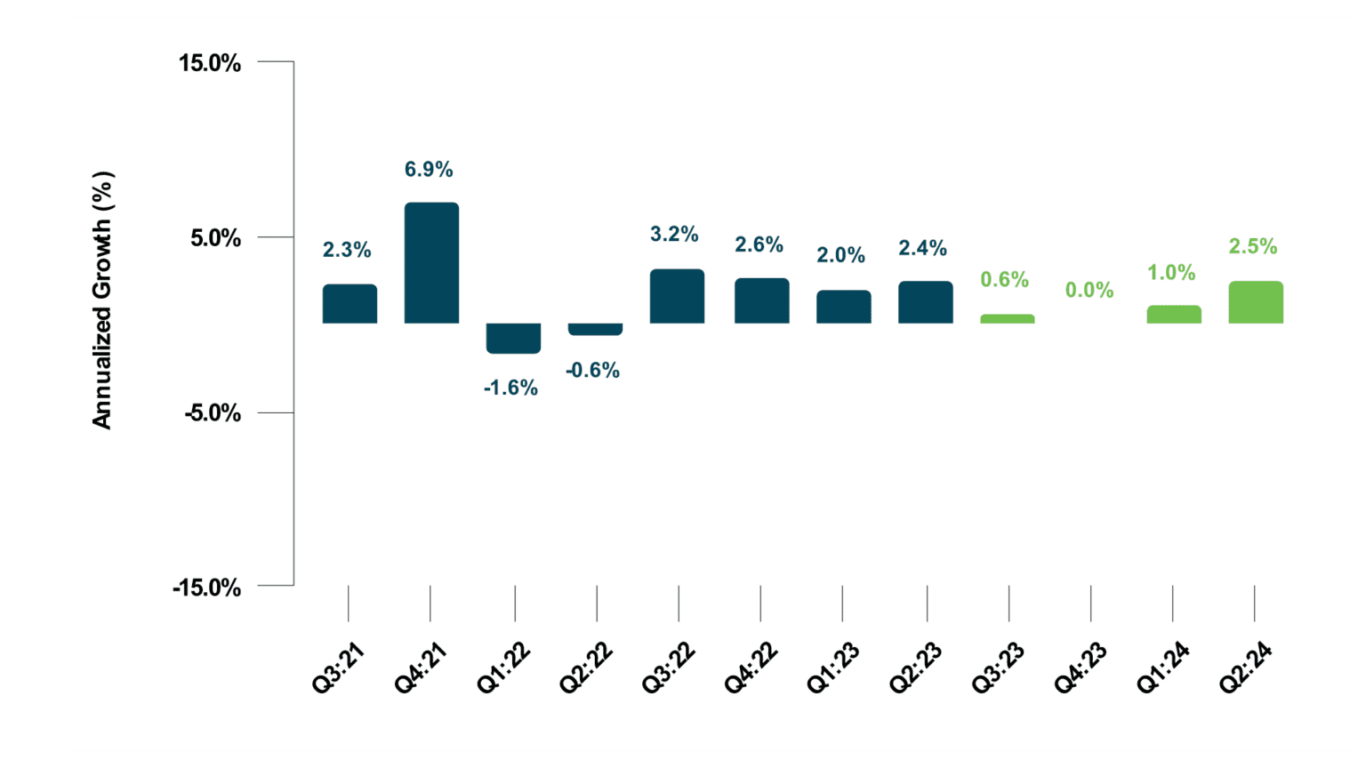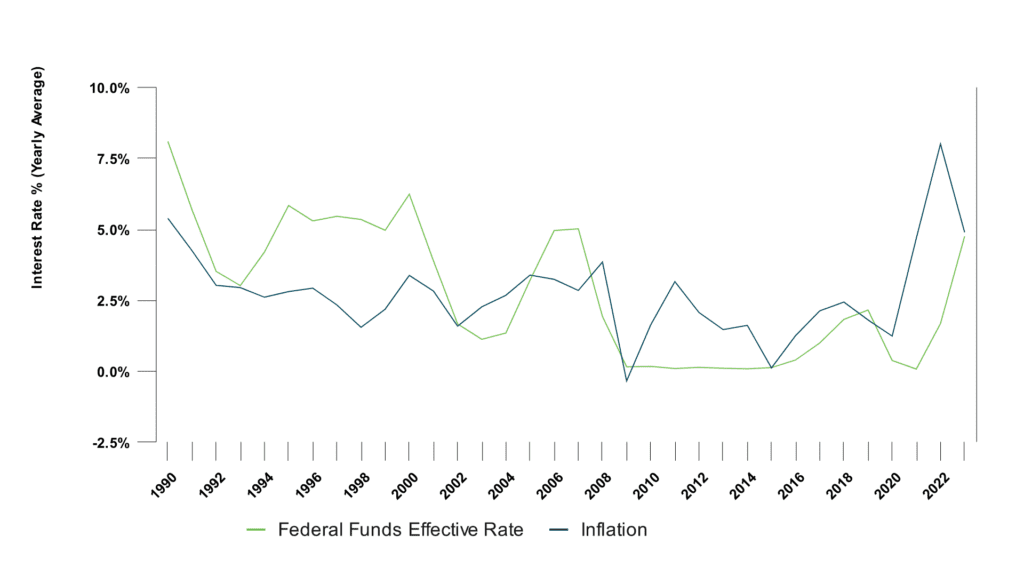To Recession or Not to Recession: Plan for Both
The biggest question surrounding the U.S. economy today is whether we, the U.S. economy, will see a recession or not in the next few years. You may have heard the expression soft or hard landing as if we were landing a 777 twinjet. No matter what you call it, we are approaching our destination, and we are going to land somewhere.
If we land softly, then the U.S. avoids an economic recession and enters a cyclical slowdown as opposed to a complete downturn. Alternatively, the U.S. economy lands with a thud, and we enter our first major recession (other than the brief Covid-19 recession) since the Great Recession which lasted from December 2007 to June 2009. Anyone who experienced the Great Recession knows that recessions can cause great hardship for U.S. households.
Hard Landing Scenario
By definition, a recession is a period of temporary economic decline during which trade and industrial activity are reduced, generally identified by a fall in U.S. Gross Domestic Product (GDP) in two successive quarters. What in the world does that mean? In real terms, companies lay off workers and slow hiring, unemployment rises and wage growth declines. This leads to less consumer demand and a lowering of production of goods and services by corporations. You may also see housing prices start to decline as household purchasing power diminishes and household debt increases, straining family budgets. Basically, recessions force people and their families to retain and protect their financial assets rather than spending or deploying them back into the economy.
As seen in the chart below, the U.S. economy entered a brief recession during the Covid-19 pandemic before rebounding back into economic expansion a few months later. Further, according to BEA’s current projection, the base case for the U.S. is positive GDP growth through Q2 2024. This indicates a hard landing or economic recession is not likely for the U.S. economy based on current projections.
U.S. GDP Growth – Real Basis by Quarter

Soft Landing Scenario
The term soft landing has been associated with the Federal Reserve’s (and other central banks) use of raising interest rates to slow down inflation while avoiding an economic recession. Sound familiar? The chart below illustrates the relationship between the Fed’s use of interest rates and inflation levels since 2006.
U.S. Federal Funds Effective Rate & Inflation by Year

Beginning in March 2022, the Fed began raising interest rates from a 0.25% federal funds rate up to a range of 5.25% to 5.50% as of October 2023. June 2023 marked the first Federal Reserve meeting where interest rates remained unchanged, triggering a possible turning point in the Fed’s fight against inflation. As can be seen in the chart above, the U.S. economy (and the Fed) has begun its decent into its destination. We just don’t know where we are landing just yet.
War, Elections, and Change
As of October 7, 2023, Israel is at war with Hamas and Ukraine is at war with Russia. World war fuels economic uncertainty, fear, and overall global conflict. The United States is actively involved in both wars with no end in sight for the wars or the U.S.’s involvement. On top of the global crisis, we will be electing a new president next November. Change in leadership can be good or bad depending on who you ask, but regardless, it is change. Are you prepared for uncertainty and change?
Preparation Time – Estate Planning
The best thing you can do during a period of high uncertainty is to prepare yourself and your family for both positive and negative outcomes. We will focus on one specific planning area you may want to consider during a period of major change and volatility: estate planning.
The Tax Cuts and Jobs Act of 2017 created a remarkable estate planning opportunity for individuals and families by more than doubling the lifetime estate tax exemption. It increased from approximately $5.6 million for individuals and $11.2 million for married couples to an inflation-adjusted amount of approximately $12.9 million for individuals and $25.8 million for married couples in 2023. This legislation is scheduled to sunset, or expire, at the end of calendar year 2025 which will reduce the lifetime estate tax exemption by approximately 50%.
Gifting Assets
Gifting valuable assets, such as privately-held stock, appreciated portfolio investments, real estate interests, and more will allow business owners to take advantage of the higher exemption amounts before it is too late. Not only do you lock in the tax savings from the current exemption amounts, but the giftee receives and reaps the benefits of the gifted asset today instead of down the road. Other tax advantages could be available as well if effective and strategic planning mechanisms are put in place.
If you are a business owner in a privately-held company, the gifting of such an interest can be extremely complex. For one, how do you place a value on the business or your ownership interest? The IRS will be interested in that answer, especially for private company stock gifts where no active market exists to price the securities. To get this accomplished, you need a professional who is qualified to determine the value of your privately-held stock. This is where Adamy can help.
Our extensive experience in performing qualified business appraisals for privately-held companies will ensure you realize the benefits of effective estate tax planning. We partner with your legal advisors to ensure your gift has a defensible, supportable, independent valuation which can be utilized to effectuate your estate plan. Our unbiased approach and extensive knowledge of valuation theory can give you peace of mind when reporting your gift to the IRS.
Are you prepared for what’s next? In a world full of doubt, uncertainty, and constant change, being prepared with a meaningful and strategic estate plan could be the difference between a soft or hard landing for your family’s financial well-being.
Contact us today
To learn more about how a valuation from Adamy can help you serve your clients with estate planning, contact one of our valuation experts.

